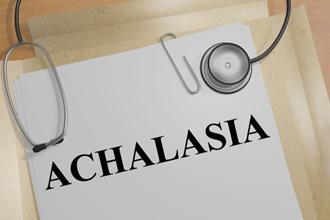
The esophagus is a tube that directs food from the throat to the stomach. Achalasia is a rare swallowing disorder that makes it more challenging for both foods and liquids to go through the esophagus into the stomach. A healthy esophagus can contract and guide food into the stomach, but when the nerves of the esophagus become damaged this can cause the esophagus to become dilated, which means that it can no longer contract to push food along. If you or someone you know has achalasia, a gastroenterologist can provide you with ways to manage your symptoms.
What are the symptoms and signs?
The most common signs of achalasia include,
- Difficulty swallowing
- Regurgitation of food
- Choking (often during regurgitation)
- Indigestion
- Chest discomfort, particularly after eating
If you or someone you love is having difficulty swallowing or experiencing other symptoms of achalasia you must see your gastroenterologist right away.
How is achalasia treated?
Achalasia requires treatment to prevent the condition from getting worse. As you might imagine, not being able to properly eat or drink anything can have detrimental effects on a person’s health and nutritional needs, as well as increase a person’s risk for aspirational pneumonia and lung infections (this is more common in seniors). Common treatment options include:
- Surgery: Traditional surgery, known as Heller myotomy, is the most common way to treat achalasia and it involves cutting the muscles of the valves that lie between the stomach and esophagus. Some patients may be candidates for laparoscopic surgery, which is a more minimally invasive technique.
- Balloon dilation: For patients who may not be able to undergo surgery, another way to treat achalasia is with balloon dilation, which is a non-surgical technique performed under moderate sedation where a balloon is placed into the esophagus and inflated to widen the area so food can easier go from the esophagus into the stomach.
- Botox: Botox may help to relax muscle spasms and to improve how food flows through the esophagus. Those patients who aren’t candidates for surgery or dilation may want to consider the benefits of Botox.
Since those with achalasia have a slightly increased risk for esophageal cancer, you must talk with your gastroenterologist about regular cancer screenings. If you or a loved one is experiencing difficulty swallowing, you must turn to a gastroenterologist who can perform the appropriate tests to find out whether a problem with the esophagus might be to blame.
